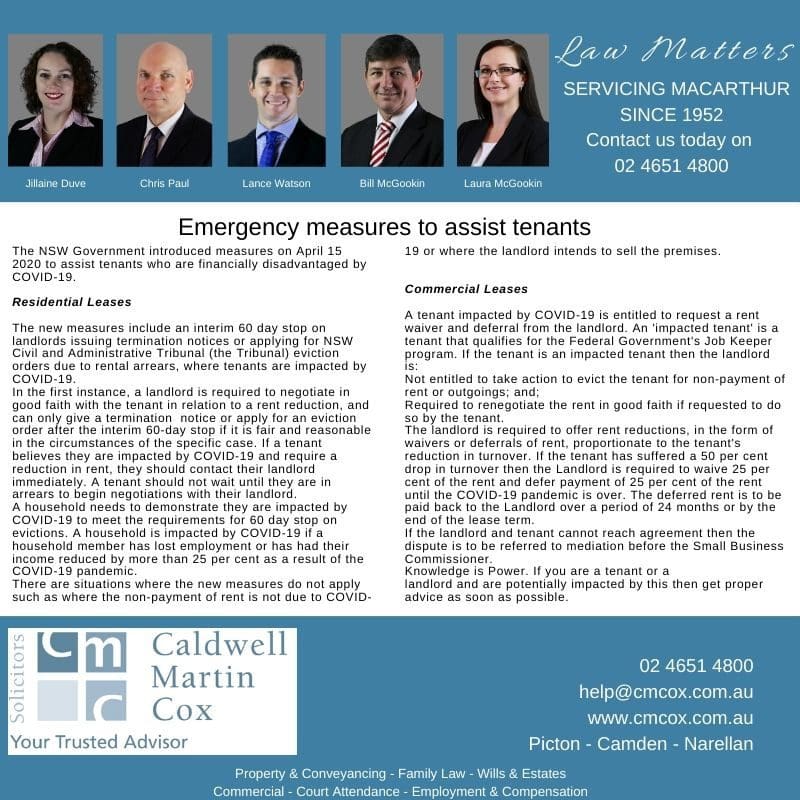In our latest article in The District Reporter, read about the emergency measures now in place to assist tenants in both residential and commercial leases, if they find themselves impacted financially by COVID-19.
Emergency measures to assist tenants
The NSW Government introduced measures on April 15, 2020 to assist tenants who are financially disadvantaged by COVID-19.
Residential Leases
The new measures include an interim 60-day stop on landlords issuing termination notices or applying for NSW Civil and Administrative Tribunal (the Tribunal) eviction orders due to rental arrears, where tenants are impacted by COVID-19.
In the first instance, a landlord is required to negotiate in good faith with the tenant in relation to a rent reduction, and can only give a termination notice or apply for an eviction order after the interim 60-day stop if it is not reasonable in the circumstances of the specific case. If a tenant believes they are impacted by COVID-19 and require a reduction in rent, they should contact their landlord immediately. A tenant should not wait until they are in arrears to begin negotiations with their landlord.
A household needs to demonstrate they are impacted by COVID-19 to meet the requirements for 60-day stop on evictions. A household is impacted if one or more rent-paying household members has lost employment or has had their income reduced by more than 25 per cent as a result of the COVID-19 pandemic.
There are some instances where the new measures do not apply such as where the non-payment of rent is not due to COVID-19 or where the landlord intends to sell the premises.
Commercial Leases
A tenant impacted by COVID-19 is entitled to request a rent waiver and deferral from the landlord. An ‘impacted tenant’ is a tenant that qualifies for the Federal Government’s Job Keeper program. If the tenant is an impacted tenant then the landlord is:
-
Not entitled to take action to evict the tenant for non-payment of rent or outgoings; and
-
Required to renegotiate the rent in good faith if requested to do so by the tenant.
The landlord is required to offer rent reductions, in the form of waivers or deferrals of rent, proportionate to a tenant’s reduction in turnover. If the tenant has suffered a 50 per cent drop in turnover, the landlord is required to waive 25 per cent of the rent and defer payment of 25 per cent of the rent until the COVID-19 pandemic is over. The deferred rent is to be paid back to the Landlord over a period of 24 months or by the end of the lease term.
If the landlord and tenant cannot reach agreement then the dispute is to be referred to mediation before the Small Business Commissioner.
Knowledge is Power. If you are a tenant or a landlord and are potentially impacted by this then get proper advice as soon as possible.




